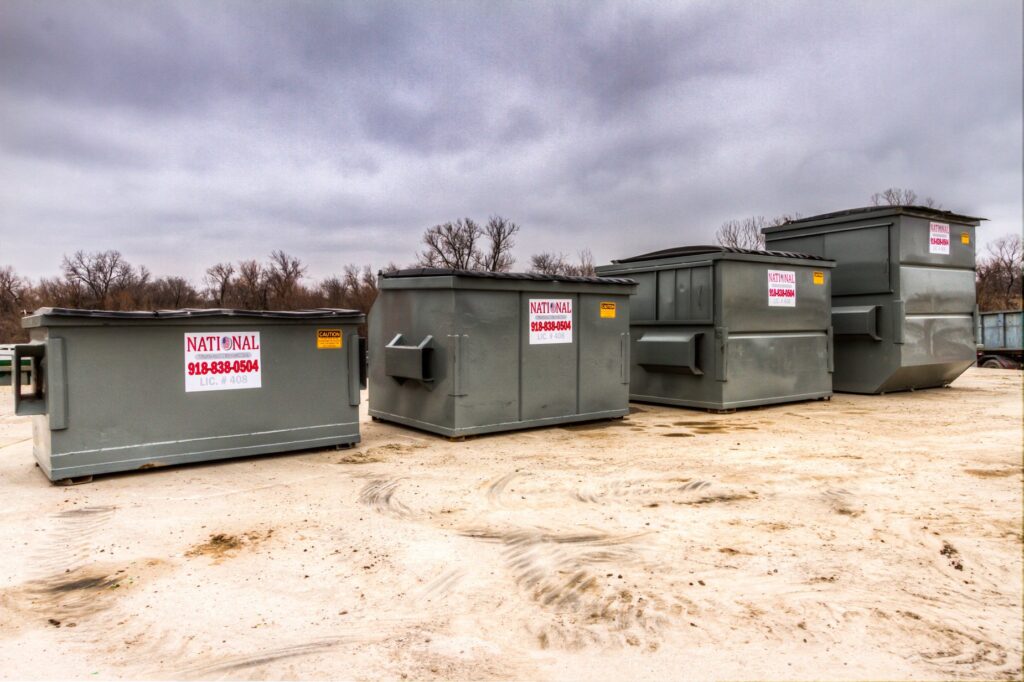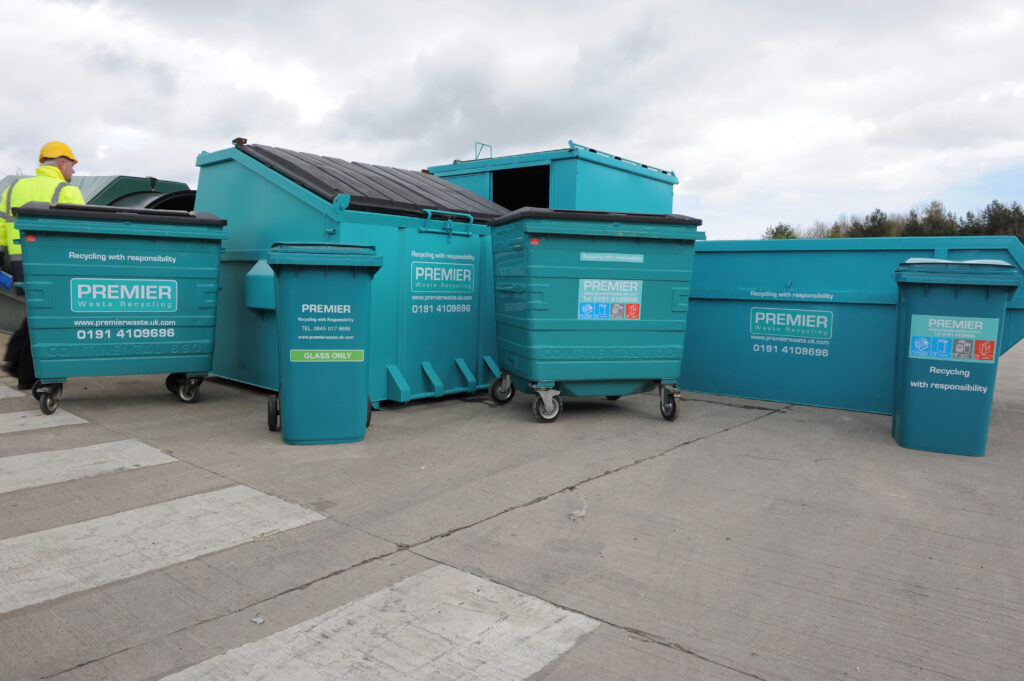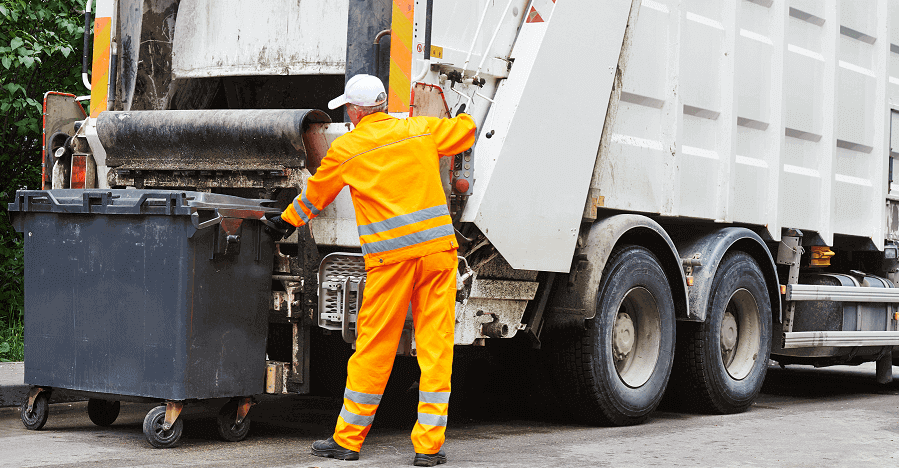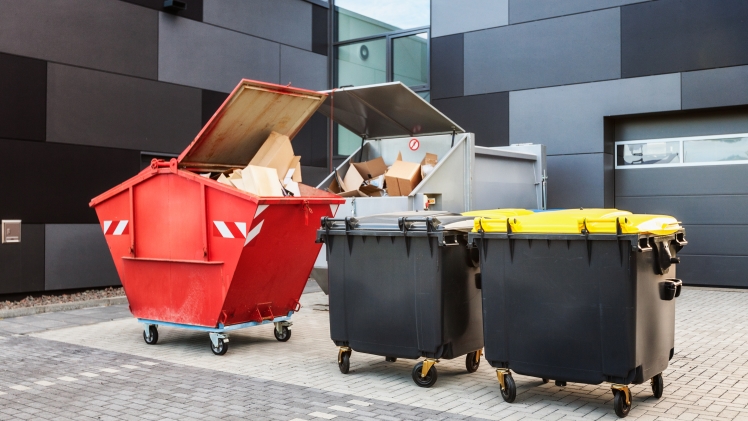Commercial waste disposal is an essential aspect of running a business. However, it can also be a significant expense that eats into a company’s profits. Streamlining waste disposal costs is an effective way to reduce expenses and improve the bottom line.
One of the first steps in streamlining commercial waste disposal costs is to conduct a waste audit. This involves analyzing the types and amounts of waste generated by the business. By understanding the waste stream, companies can identify areas where waste can be reduced or eliminated.
If a company doesn’t have the in-house resources for the audit, they can request one from a service provider. In many cases, subtle changes to the program can result in savings. Things like opting for regular service vs. temporary roll-off containers delivered, or even just changing the size of the dumpster to change the frequency of pickups.
Another strategy for reducing waste disposal costs is to implement a recycling program. Recycling not only helps the environment but can also reduce waste disposal expenses. By separating recyclable materials from the waste stream, companies can reduce the amount of waste that needs to be disposed of in landfills.
Understanding Commercial Waste Disposal

source: pinterest.com
Commercial waste disposal refers to the management and removal of waste generated by businesses. From construction companies and restaurants to shinglers and offices-they all fall under this category. It includes various types of waste such as hazardous waste, industrial waste, and municipal solid waste. Commercial waste disposal is a complex process that requires careful planning and execution to ensure compliance with regulations and minimize costs.
Businesses generate waste in various forms, including paper, cardboard, plastics, metals, and chemicals. It is essential to understand the type and quantity of waste generated to determine the most suitable disposal method. Commercial waste disposal methods include landfill, incineration, recycling, and composting.
Landfills are the most common method of commercial waste disposal. Waste is transported to a landfill site, where it is buried and left to decompose. This method is cost-effective but has significant environmental impacts. Landfills can release harmful gases, contaminate soil and water, and emit odors.
Incineration involves burning waste at high temperatures to reduce its volume and convert it into ash. This method is suitable for hazardous waste and medical waste but can be expensive and have environmental impacts. Incineration can release harmful pollutants into the air and generate ash that requires disposal.
Recycling is an effective method of commercial waste disposal that involves converting waste into new products. It reduces the amount of waste in landfills and conserves natural resources. Recycling can be cost-effective, but it requires careful sorting and processing of waste materials.
Composting is a method of waste disposal that involves breaking down organic waste into compost. It is suitable for food waste, yard waste, and other organic materials. Composting reduces the amount of waste in landfills and produces a natural fertilizer that can be used in agriculture.
In conclusion, understanding commercial waste disposal is essential for businesses to manage waste effectively and minimize costs. Businesses must consider the type and quantity of waste generated and choose the most suitable disposal method. By adopting sustainable waste management practices, businesses can reduce their environmental impact and contribute to a cleaner and healthier planet.
Evaluate Current Waste Disposal Practices

source: pinterest.com
When it comes to commercial waste disposal, evaluating current practices is the first step toward streamlining costs. This involves taking a closer look at how waste is currently being managed and identifying areas where improvements can be made.
Cost Analysis
One important aspect of evaluating current waste disposal practices is conducting a cost analysis. This involves looking at the total cost of waste disposal, including any fees for collection and transportation, as well as any costs associated with landfill or incineration fees. By understanding the total cost of waste disposal, businesses can identify areas where they may be able to reduce costs, such as by implementing recycling programs or reducing the amount of waste generated. For businesses in California, utilizing services like California dumpster rentals can also help streamline costs effectively.
Waste Audit
Another important step in evaluating current waste disposal practices is conducting a waste audit. This involves examining the types and amounts of waste generated by the business, as well as how that waste is being managed. By identifying areas where waste is being generated unnecessarily or where waste could be diverted from the landfill, businesses can implement more effective waste management strategies that can help to reduce costs.
Overall, evaluating current waste disposal practices is an important step toward streamlining costs and reducing the environmental impact of commercial waste. By conducting a cost analysis and waste audit, businesses can identify areas where improvements can be made and implement more effective waste management strategies.
Implement Waste Reduction Strategies

source: pinterest.com
To reduce commercial waste disposal costs, businesses need to implement waste reduction strategies. This can be achieved by reusing and recycling materials, as well as minimizing waste.
Reuse and Recycle
Businesses can save money by reusing and recycling materials. This can be done by implementing a recycling program and encouraging employees to recycle. Businesses can also reuse materials by implementing a waste exchange program, where they can exchange unused materials with other businesses.
Another way to reuse materials is by using recycled materials in the production process. This can be done by purchasing recycled materials or by using materials that can be recycled after use. By doing so, businesses can reduce the amount of waste they produce and save money on disposal costs.
Waste Minimization
Waste minimization is another effective way to reduce commercial waste disposal costs. This can be done by implementing a waste reduction program, which involves identifying areas where waste can be reduced and taking steps to reduce it.
Businesses can also reduce waste by using less packaging, reducing the amount of paper used in the office, and using energy-efficient equipment. By doing so, businesses can reduce their waste and save money on disposal costs.
In conclusion, implementing waste reduction strategies is an effective way to reduce commercial waste disposal costs. By reusing and recycling materials and minimizing waste, businesses can save money and reduce their environmental impact.
Negotiate with Waste Disposal Contractors

source: pinterest.com
Regarding commercial waste disposal costs, negotiating with waste disposal contractors can be an effective way to reduce expenses. By understanding the contract terms and negotiating on price, businesses can save money without sacrificing the quality of their waste disposal services.
Contract Terms
Before signing a contract with a waste disposal contractor, it’s important to review the terms carefully. Businesses should ensure that the contract includes clear terms for the following:
- Frequency of service
- Types of waste accepted
- Recycling options
- Penalty fees for missed pickups or contaminated waste
- Termination clauses
- Businesses should also confirm that the contractor is licensed, insured, and compliant with all local and state regulations.
Price Negotiation
When negotiating on price, businesses should be prepared to provide the contractor with information on their waste disposal needs and volume. This can help the contractor provide a more accurate quote and identify areas where costs can be reduced.
Businesses can also consider the following strategies to negotiate on price:
- Request multiple quotes from different contractors to compare prices
- Negotiate a longer contract term for a lower rate
- Consider bundling waste disposal services with other services the contractor offers
- Negotiate a lower rate for off-peak pickup times
By negotiating on contract terms and prices, businesses can streamline their commercial waste disposal costs and save money in the long run.

